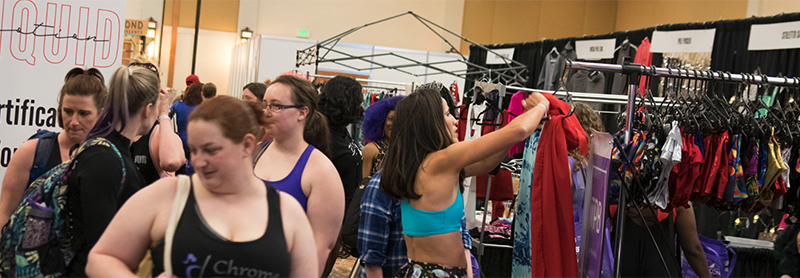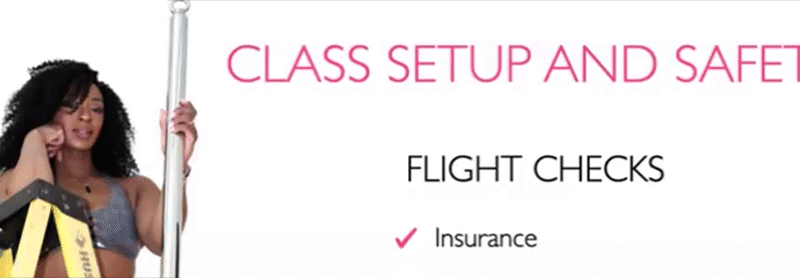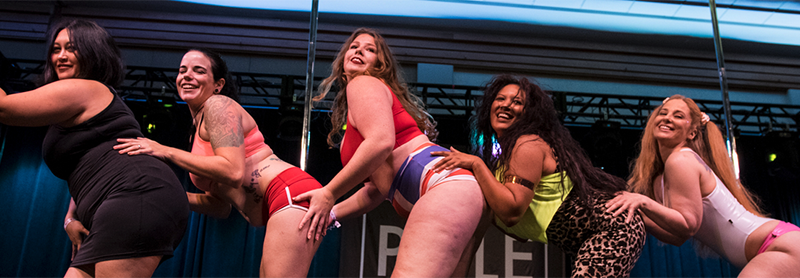A train-cation is a trip (usually away from home) where you focus for a specific…

How to license your pole dance business
Licensing and franchising are two ways to grow your pole dance business. Learn about the difference between these two options in this post. This post is about the details of how to set up a licensing agreement.
What is licensing?
Licensing is a limited legal relationship that allows someone else to use your intellectual property, trademark, technology, methodology, formula, recipe, or other specific thing that you control the rights to. In most cases, a license is granted in a limited capacity for a specific asset to be used in a specific way.
For example, you may license a type of pole class that has a defined methodology and name for other people to teach. Licensees would sign an agreement that specifies what the licensee can and cannot do with the asset. Typically, if someone licenses your pole class type and name, they would not be able to influence or change your business operations, and you would not be able to influence theirs. They would also have to abide by certain rules for how to teach your material, such as using a specific name, a specific format, teaching specific moves using your defined names, and maybe even using a specific playlist or a patented and specific tool or piece of equipment.
Other common licensing agreements in the pole industry include licensing your own image for other uses, such as on merchandise, or licensing your competition or event structure around the world for others to implement.
For someone looking to add to their business, licensing a name, style, or methodology can be a great way to instantly benefit from the brand recognition of the thing you are licensing. This can also be a very affordable way to add new content to an existing set of offerings for your business.
How do you set up a license concept?
Before you get to the legal stuff (which is really important!), start by organizing what your license offers to a potential licensee.
Ask yourself these questions, and make sure you are considering the answers from the point of view of the licensee. Why would they want to work with you? If you are looking to license a pole dance business and you don’t receive a document that has this information, ask the person you are trying to work with these questions.
- Define what your license is for, like a specific type of class.
- Define the goal in the context of the licensee. Does the licensee get access to cool new stuff? Will this draw people to their studio? Be specific and quantitative if you can, such as “licensees see an increase of 20% new students who come specifically to their studio to take this class.”
- Specify the cost type. Is this a flat fee (paid once or paid in installments)? A percentage of sales? A combination of both? You don’t have to assign a specific number here, especially if you have options for additional support or services (see more about that below) that could affect that fee.
- Specify the duration. Is there a set timeline, or is this license in perpetuity? You likely want to include a specific timeline with some reviews built in to make sure your brand is being represented in the way the license contract specifies. A license in perpetuity can impact not just you but your heirs in the future, so generally you do NOT want that option. A meeting can also be a good opportunity to offer your licensee more things they may be interested in buying, such as more support, other items/classes/brands, etc.
- Specify the process for renewal. Do you have a yearly check-in meeting? Does the licensee have to meet certain criteria like a revenue target to renew? How are you monitoring this compliance?
- Specify the default clause. What happens if the licensee doesn’t pay? What happens if they don’t follow the rules about your brand that you contractually put in place? What happens if you, the licensor, defaults? What resources (if any) does the licensee have? What is the licensee legally liable for?
- Explain what other support or services are included in the license. Do you include marketing support, like a logo and branding, with the license? Do you offer operations support, like mentoring? Make sure you do not provide too much operational support for a license otherwise; your license is a franchise and is subject to different legal rules.
- Explain what is not provided. Generally, you aren’t going to provide things like financial support, equipment, insurance, physical space, legal, accounting, or other services that could qualify your license as a franchise. Being very specific about what you do NOT provide can sometimes more accurately frame a conversation than explaining what you do provide.
What are the risks and drawbacks?
There are always risks to your brand when you let other people access it and use it. While licensing can be a great way to grow your revenue, a bad situation in one specific instance can reflect poorly on the entire brand and negatively impact your revenue or your company’s good will. Good will in this case is a business term that is considered to be an intangible accounting asset that can affect the value of your company.
For those who are looking to license, make sure you understand the details of what you are buying and what you are not buying. Also, understand what the termination clauses are in any agreement you sign. These will affect what assets you can and cannot continue to use after your license is legally over.
What are the legal details?
If you are trying to create a license, make sure your intellectual property is trademarked (more on that in this post) and be very clear about what you are providing under the license as well as any relevant time frames for use.
Always make sure you work with a lawyer to create the appropriate documents in your jurisdiction (location) and confirm that you are compliant. Click here for a sample template to create a license contract to use as reference.
Legal requirements and consequences can also change dramatically across international borders. If you are buying into an international license or franchise, REALLY make sure you have a lawyer involved.
Conclusion
Licensing is a great way to grow your business and help other people develop and grow their own businesses. If you’re getting serious about licensing your pole dance business, start by developing a marketing document about what you are providing (and not providing) that can be used to start the conversation with potential licensees. Once your potential licensee is ready to formalize your agreement, you absolutely need a contract, even if you are licensing to a friend or a family member. A contract protects you both!



